Woke Sermon: Journey of Baby Moses in Basket is about About Queer Acceptance +Alternative Heteronormative Family Structures

Lutheran Church of the Cross is a Canadian congregation that “affirms and celebrates human diversity in God’s creation.” Led by Lyndon Sayers and Lyle McKenzie, they are an ELCIC (Evangelical Lutheran Church in Canada congregation, the canuck version of the ELCA) that is populated by senior citizens, lesbians, and a host of other ragtag goatlings.
During their sermon, Divinity Student Reba, reveling in a God of her own making, explains that the baby Moses trip in a basket on the Nile river has some queer themes, and is actually about kinship outside of heteronormative family structures, as well as a metaphor for the turbulence that trans folk experience at the hands of the church.
First, thank you for doing the internal and interpersonal and communal work of being an affirming community. That’s really important work and it has no definite endpoint. So I thank you for sticking it out.
The second thing I want to do, because I’m a guest is, I’d like to just tell you who I am. My name is Reba. I use they/them pronouns. I am queer in both identity and politics. I am a student at Vancouver School of Theology and a candidate for ordination in the Anglican Church of Canada.
I think every dog is the most beautiful dog in the world. I’m an Aries with a Scorpio moon and I moonlight as a voice actor on a fiction podcast. I am here today because I am a queer Christian and a Christian queer. I’m here because queer and Christian are two of the most important threads running through my life. And they are so interwoven that I couldn’t separate them even if I wanted to.
…Queerness shapes all my relationships, myself, understanding my politics and theology and in general just how I move through the world. Queerness for me, means a diverse and chosen community, a family that is committed to radical inclusion, justice and the abolition of all false boundaries and binaries. It has fundamentally changed my relationship to Christianity, and I genuinely believe that being queer has taught me how to be a better Christian. Put differently, the main reason that I’m still a Christian at all is because I found that there is something very queer at the heart of Christianity, a call to resist harmful and oppressive structures, the breaking down of every binary and boundary that constrains and divides us.
That’s a wild introduction. Reba begins her sermon:
“I want to tell you about why the Exodus reading today tugs at my queer little heart. The story of Moses in the river is a favorite of mine. It’s an extraordinary little tale about found family, literally family found in the reeds, and all the beautifully messy ways that God calls us to be kin to one another outside heteronormative family structures.
…I think it’s really interesting that Moses’ adoptive mother named him after the way that he came to her. The arguably deeply painful and traumatic beginnings of his life characterized by danger and hiddenness and tumbling along the Nile, are what inspire his name, which by the way, is a Hebrew name, not an Egyptian one.
So why would she do that? Surely it would be kinder, gentler, safer to just give him a nice generic Egyptian name and move on. So it makes me wonder. It seems that Pharaoh’s daughter understands that Moses origins are important. They are part of him. And moreover, they’re part of how he got to her…So I think her choice to name him as she does, is also a choice to love him relentlessly and unconditionally. I think it is a tiny act of resistance against an oppressive empire that enslaved Moses, his people. I think it’s a promise to keep him safe. I think it’s a commitment to helping him remember where he came from and to appreciate all the parts of himself.
She concludes:
So too with us and God…. I want to focus on the ways in which this is particularly true for queer folks. There’s the relatively obvious, God creates, sees and loves our queerness before we do. God knew me as the trans, bi(sexual) adult I would become long before I did, and created me as such in fact. No part of me needs to be left behind in order in order for God to love me and call me to discipleship.
But there is another layer, and it’s that one that keeps tugging at me. Because I think about Moses’ traumatic origins. An infant born into an era of oppression and violence, buffeted about on the Nile River with just a basket for protection. And I think about how Pharaoh’s daughter names this trauma, as part of his belovedness.
She drew him from the waters in his wholeness, and it is that wholeness that she loved. Likewise, I think about the confusion, the fear, the trauma that my queer siblings experience, both in the institutional church and in society more broadly. The currents of church hurt are swift and sharp. Nevertheless, time and time again, God rolls up Their sleeves, crouches at the shore, and pulls us from those cold, violent tides of homophobia, transphobia, and queer phobia.
We are drawn from the water and held close as beloved children, we are embraced. We are sheltered in the house of God, and we are lifted up with pride. I know that God loves me utterly and entirely for who I am, that They trace the scars on my soul and still name me as beautiful and whole. They unfold my pain into that wholeness without requiring that I leave it behind for anyone else’s comfort. God’s love for me, which is all encompassing and undeniably queer, is what helps me stay queer and Christian, and helps me stay in the church and hold together my grief and trauma with my hope and love.

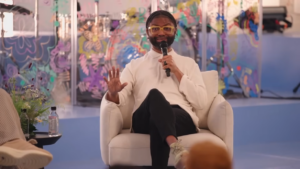
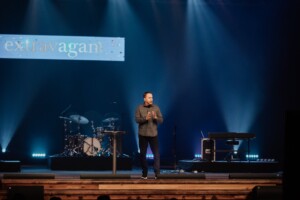
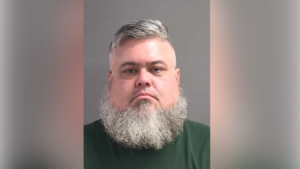

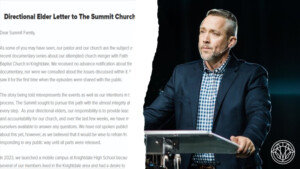
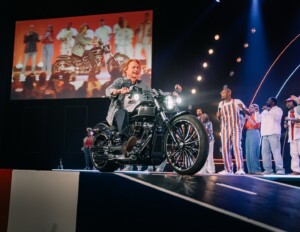
A godless freak show – and I’m being kind.
Is she even a Believer ?
Pretty sure she’s not. Very sad. I will pray for her